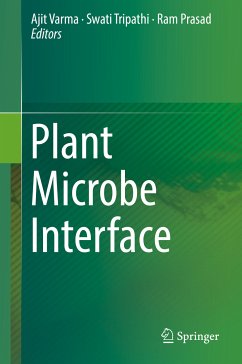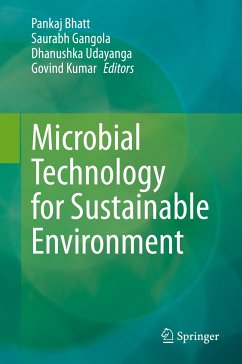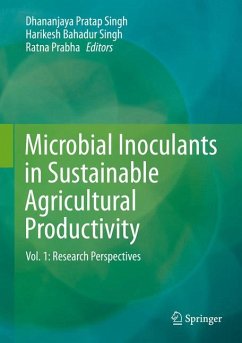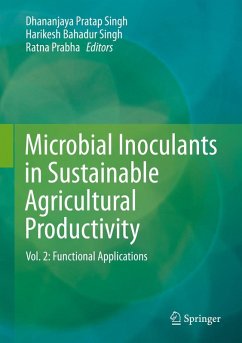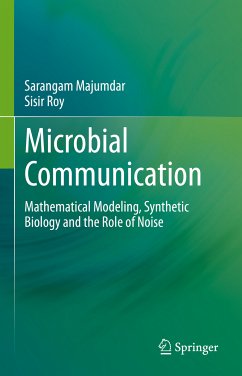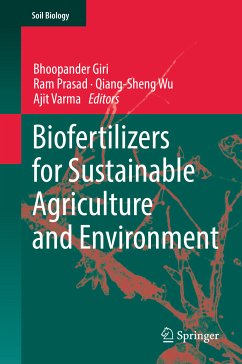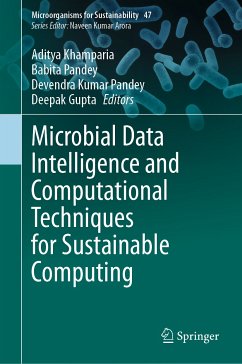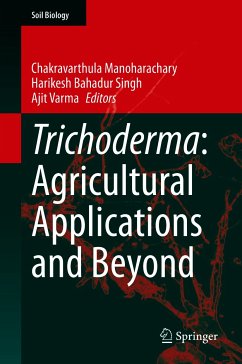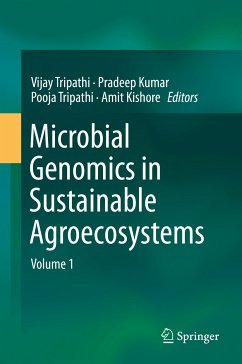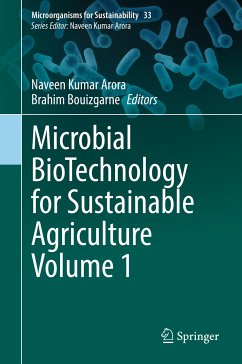
Microbial Biocontrol Techniques (eBook, PDF)
Importance in Ensuring Food Security
Redaktion: Kumar, Ajay; Solanki, Manoj Kumar
Versandkostenfrei!
Sofort per Download lieferbar
152,95 €
inkl. MwSt.
Weitere Ausgaben:

PAYBACK Punkte
76 °P sammeln!
This book delves deeply into the field of microbial biological control. It is the method in which microbes, predators, and pathogens interact in a complex action to defend crops from damaging pests and diseases. This conventional method, which is frequently eclipsed by modern substitutes, is a cornerstone of sustainable agriculture. In addition to providing a practical way to protect our crops, it also offers a way to preserve the delicate ecosystems' balance while being environmentally benign.This book investigates the use of microbes in sustainable agriculture. It discusses current research ...
This book delves deeply into the field of microbial biological control. It is the method in which microbes, predators, and pathogens interact in a complex action to defend crops from damaging pests and diseases. This conventional method, which is frequently eclipsed by modern substitutes, is a cornerstone of sustainable agriculture. In addition to providing a practical way to protect our crops, it also offers a way to preserve the delicate ecosystems' balance while being environmentally benign.
This book investigates the use of microbes in sustainable agriculture. It discusses current research and collaborations using helpful bacteria, emphasizing relationships between allies and foes. For disease resistance, emerging technologies like CRISPR/Cas9 and nanotechnology are considered. Market demands for biofertilizers that increase nutritional content and act as eco-friendly insecticides are discussed. Metagenomics, efficient formulations, and soil amendments are amongthe contemporary tools investigated. The volume strongly emphasizes shelf-life extension, biocontrol future trends, and storage, opening the door for creative microbial-based agricultural technologies.
This interdisciplinary book is useful for a diverse group of readers including microbiologists, biotechnologists, agronomist, policymakers, university students and those who are interested in the development of strategies for sustainable farming by utilizing microbial communities.
This book investigates the use of microbes in sustainable agriculture. It discusses current research and collaborations using helpful bacteria, emphasizing relationships between allies and foes. For disease resistance, emerging technologies like CRISPR/Cas9 and nanotechnology are considered. Market demands for biofertilizers that increase nutritional content and act as eco-friendly insecticides are discussed. Metagenomics, efficient formulations, and soil amendments are amongthe contemporary tools investigated. The volume strongly emphasizes shelf-life extension, biocontrol future trends, and storage, opening the door for creative microbial-based agricultural technologies.
This interdisciplinary book is useful for a diverse group of readers including microbiologists, biotechnologists, agronomist, policymakers, university students and those who are interested in the development of strategies for sustainable farming by utilizing microbial communities.
Dieser Download kann aus rechtlichen Gründen nur mit Rechnungsadresse in A, B, BG, CY, CZ, D, DK, EW, E, FIN, F, GR, HR, H, IRL, I, LT, L, LR, M, NL, PL, P, R, S, SLO, SK ausgeliefert werden.



